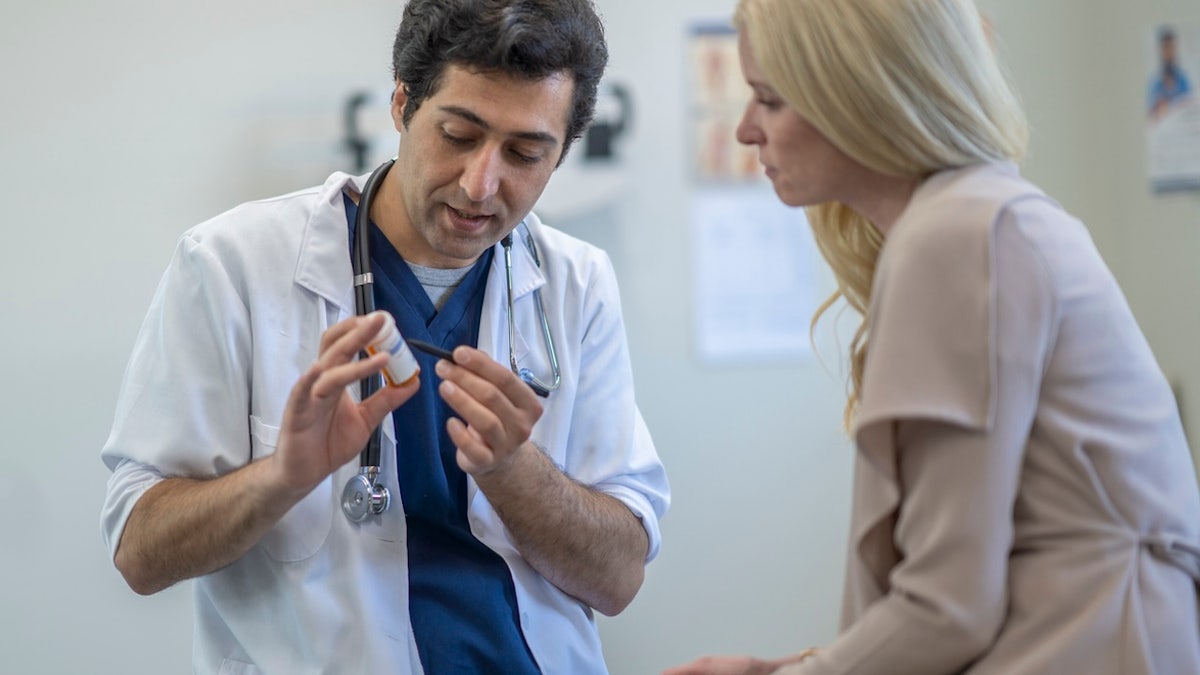One in nine kids in US diagnosed with ADHD
Clinical psychologist Dr. Kevin Gilliland on what is behind rising ADHD diagnosis on children.
Diagnoses of ADHD (attention-deficit/hyperactivity disorder) are on the rise among adults in the U.S.
Approximately 15.5 million adults had an ADHD diagnosis in 2023, according to a new report from the Centers for Disease Control and Prevention (CDC).
That’s equivalent to around 6% of adults in the country, or one in 16.
Around half of these diagnoses didn’t come until adulthood.
ADHD AFFECTS 1 IN 9 KIDS IN US, NEW REPORT REVEALS: ‘SHAME AND STIGMA’
The agency gathered this data from the National Center for Health Statistics Rapid Surveys System between October and November 2023.

Approximately 15.5 million adults had an ADHD diagnosis in 2023, according to a new report from the CDC. (iStock)
The study also found that adults with ADHD were more likely to be 50 or younger (84.5% versus 51.2%) and more likely to be non-Hispanic White (70.4% versus 61.4%).
Those earning less than the federal poverty level were also more likely to be diagnosed (22.1% versus 12.3%), per the CDC.
ADHD IN MALES VERSUS FEMALES: WHAT YOU MUST KNOW ABOUT THE DIFFERENCES IN SYMPTOMS AND TREATMENTS
Around one-third of the adults with ADHD reported taking some type of stimulant medication, but more than 71% said the prescription was difficult to obtain.
Around half of diagnosed adults said they had ever used telehealth to receive treatment for ADHD.
The study did have some limitations, the CDC acknowledged.

Electronic devices and social media could contribute to the spike in diagnoses, a psychotherapist said. (Marina Demidiuk)
"First, self-reports of ADHD diagnosis might be subject to recall and reporting biases and were not validated against medical records," the agency stated in the report.
"Second, surveys with commercial online panels have low response rates and might underrepresent certain subpopulations, increasing the potential for nonresponse bias."
COVID LOCKDOWNS INCREASED ADHD RISK AMONG 10-YEAR-OLD CHILDREN, NEW STUDY FINDS
A third limitation is that the sociodemographic and geographic data were collected before the survey was administered, which "could have affected the demographic distribution for some variables, such as age, education, household income and metropolitan status," the report stated.
A psychotherapist weighs in
Jonathan Alpert, a psychotherapist in Manhattan and Washington, D.C., said he has a new patient coming in each week with concerns about ADHD.
CLICK HERE TO GET THE FOX NEWS APP
"There certainly are those accurately diagnosed with ADHD and in need of medication — however, much like the GLP-1 phenomenon, there's a shortage of medication because of all the people using it off-label or not truly in need of it," he told Fox News Digital.
"The first line of treatment should be psychological and behavioral intervention."
There are also many patients who don’t actually have the disorder, but have been self-diagnosed through online research, according to Alpert.
"This fits into a broader phenomenon in our nation where we have become too therapized, too diagnosed, and frankly, too dependent upon people like me," he said.
CLICK HERE TO SIGN UP FOR OUR HEALTH NEWSLETTER
When it comes to the treatment of ADHD and other mental health disorders, Alpert says, "the first line of treatment should be psychological and behavioral intervention — not necessarily medications, as they are not without side effects."

Around one-third of the adults with ADHD reported taking some type of stimulant medication, but more than 71% said the prescription was difficult to obtain. (iStock)
The psychotherapist also flagged electronic devices and social media as potentially contributing to the spike in diagnoses.
"The very nature of these is to provide stimulation through a device where the brain is continuously engaged — and, for many people, overly engaged," Alpert cautioned.
For more Health articles, visit www.foxnews.com/health
"This leads to distractibility, disorganization and the inability to complete tasks, among other hallmark features of the diagnosis."
"By making significant behavioral and lifestyle changes, one can start to minimize their symptoms and make improvements, thereby lessening their reliance on medication."










































